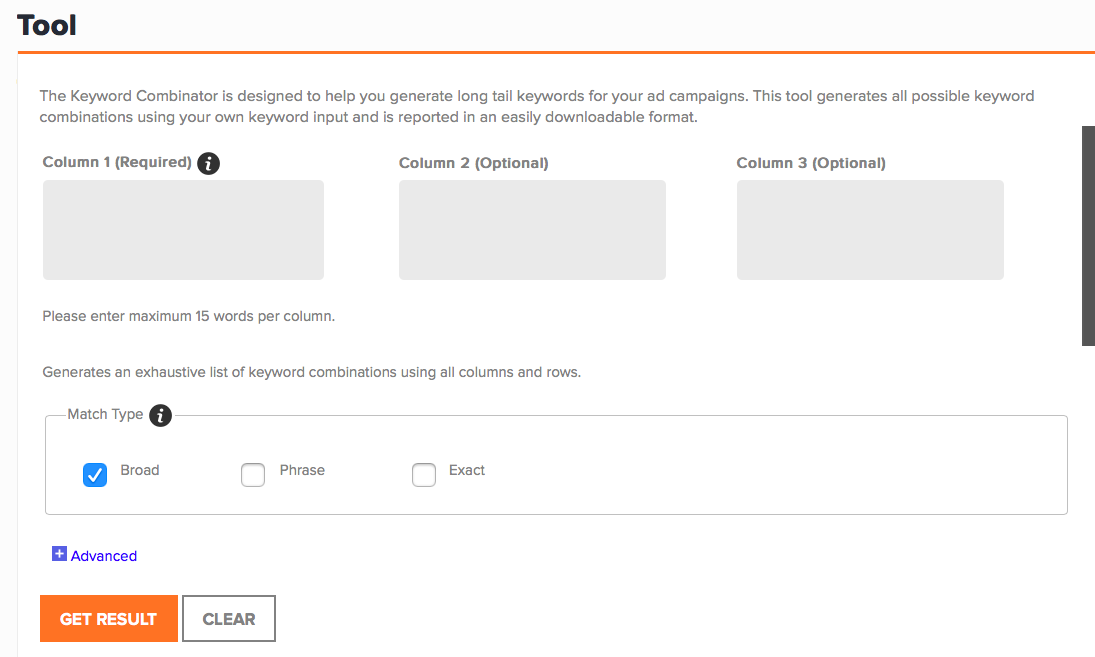Keywords have always played a significant role in PPC success as we’ve discussed countless times before. But with the introduction of AdWords features, such as Dynamic Search Ads and ad-customizers, it’s become much easier for some advertisers to drive their web traffic and increase their conversions with ads that are customized to target audiences based on the content of their websites. Both tactics have been proven effective, but it does seem that AdWords is lessening the role of keywords, or as we’ve mentioned before, defeating the purpose of some modifiers, hurting those businesses that may attract a smaller range of relevant queries to their website. But with all these changes, it can be challenging to determine which features to use and how to come to those conclusions. So, it’s intelligent to consider ways of optimizing your keywords, as we cannot deny that it remains an effective AdWords strategy if implemented correctly, especially with the challenges Google’s recent change to Exact Match may bring and the poor influence features like DSA’s may have on your business.
As mentioned earlier, the role of keywords is certainly playing a different role than ever before. The concept of attracting Exact Match queries that will trigger your ads is becoming almost extinct, especially after AdWords made the recent decision to ignore word order and function words when deciding whether to trigger Exact Match for relevant keywords. There is no doubt it’s becoming more challenging for some advertisers to thrive in an industry where fewer variations in their keywords will trigger ads for their goods and services. However, we cannot deny that keywords still play a significant role in attracting web visitors if chosen correctly and may be worth the time and energy of being optimized, especially if alternative features like DSA’s and other ad customizers aren’t necessarily yielding to the results you’d prefer based on what you’ve identified in your data.
How can you make this distinction? Trial and error, then using the features or tools that will help you generate results. For example, while AdWords’ experimental features or your theoretical understanding of what AdWords features can potentially do for your account may be effective (through keyword research), it’s never going to be as forthcoming as actually seeing the impact of those results in reality. And if, for example, you actually test those features, and notice by your results keywords are objectively more effective in drawing in users that are most likely to convert, though DSA’s are theoretically effective in driving in browsers, you should focus on keywords.
But wait? Aren’t keywords becoming more and more diluted? Didn’t Google make the recent decision to ignore word order and function words in Exact Match, making it more difficult for businesses with a smaller range of relevant keywords survive in this competitive online sphere? For some businesses, the answer is yes. As a result, we recommend that you try LXRMarketplace’s Keyword Combinator Tool. Why?
The LXRMarketplace Keyword Combinator can help you generate long-tail keywords for your Google AdWords account and Bing Ad campaigns by creating all possible combinations of keywords. Other benefits of the tools include:
- Adds match types such as Phrase Match and Exact Match types, maximum CPC bid, and landing page URL’s all from one screen
- Generates keyword reports similar to AdWords editor and Bing Ads Desktop with all keyword combinations
- Calculates the recommended CPC bids and landing page URL’s
On the surface, we can objectively discern why this feature would be significant. But more importantly, it provides such an array of keyword combinations that may very well be useful in the light of all the current changes to AdWords. As mentioned earlier, you may believe that changes to Exact Match may lessen the range of relevant search queries that trigger your ads for your goods and services. However, our Keyword Combinator tool can provide you with a range of keywords, including match-types like Phrase and Exact Match types, that you may’ve not realized would trigger your ads. Not to mention, the tool generates these combinations in seconds, with little costs, if you simply input your keywords by clicking here or in the graphic below. So, give it a try. It can’t hurt to use this third-party tool, especially if you are in the difficult situation of optimizing your keywords because other features have been less effective, and even more so if you believe Google’s constant changes to modifiers could be working against you. In this case, you may have little else to choose from.



